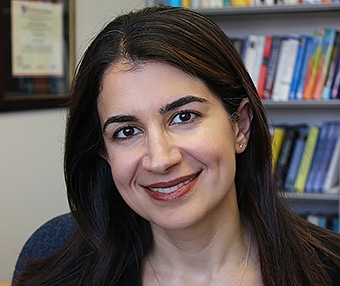Researchers in UC Santa Barbara professor Yasamin Mostofi’s lab have given the first demonstration of using an ordinary wireless signal to achieve three-dimensional imaging of objects through walls. The technique, which involves two drones working in tandem, could have a variety of applications, such as emergency search-and-rescue, archaeological discovery, and structural monitoring.
“Our proposed approach has enabled unmanned aerial vehicles to image details through walls in 3D using only WiFi signals,” said Mostofi, a professor of electrical and computer engineering at UCSB. “This approach utilizes only WiFi RSSI measurements, does not require any prior measurements in the area of interest, and does not require objects to move in order to be imaged.”
The proposed methodology and experimental results appeared in the Association for Computing Machinery/Institute of Electrical and Electronics Engineers International Conference on Information Processing in Sensor Networks (IPSN) in April 2017.
In their experiment, two autonomous octocopters take off and fly outside an enclosed, four-sided brick house the interior of which is unknown to the drones. While in flight, one copter continuously transmits a WiFi signal, the received power of which is measured by the other copter for the purpose of 3D imaging. After traversing a few proposed routes, the copters utilize the researchers' imaging methodology to reveal the area behind the walls in high-resolution 3D images of the objects inside. The 3D image closely matches the actual area.
“High-resolution 3D imaging through walls, such as brick walls or concrete walls, is very challenging, and the main motivation for the proposed approach,” said Chitra R. Karanam, the lead PhD student on the project.
This development builds on previous work in the Mostofi lab, which has pioneered sensing and imaging using everyday radio frequency signals such as WiFi. The lab published the first experimental demonstration of imaging with only WiFi in 2010, followed by several other works on the subject.
Mostofi notes that "Enabling 3D through-wall imaging of real areas is considerably more challenging due to the considerable increase in the number of unknowns." While their previous 2D method utilized ground-based robots working in tandem, the success of the 3D experiments iis possible because of the copters’ ability to approach the area from several angles, and the new methodology developed by her lab.

Yasamin Mostofi
